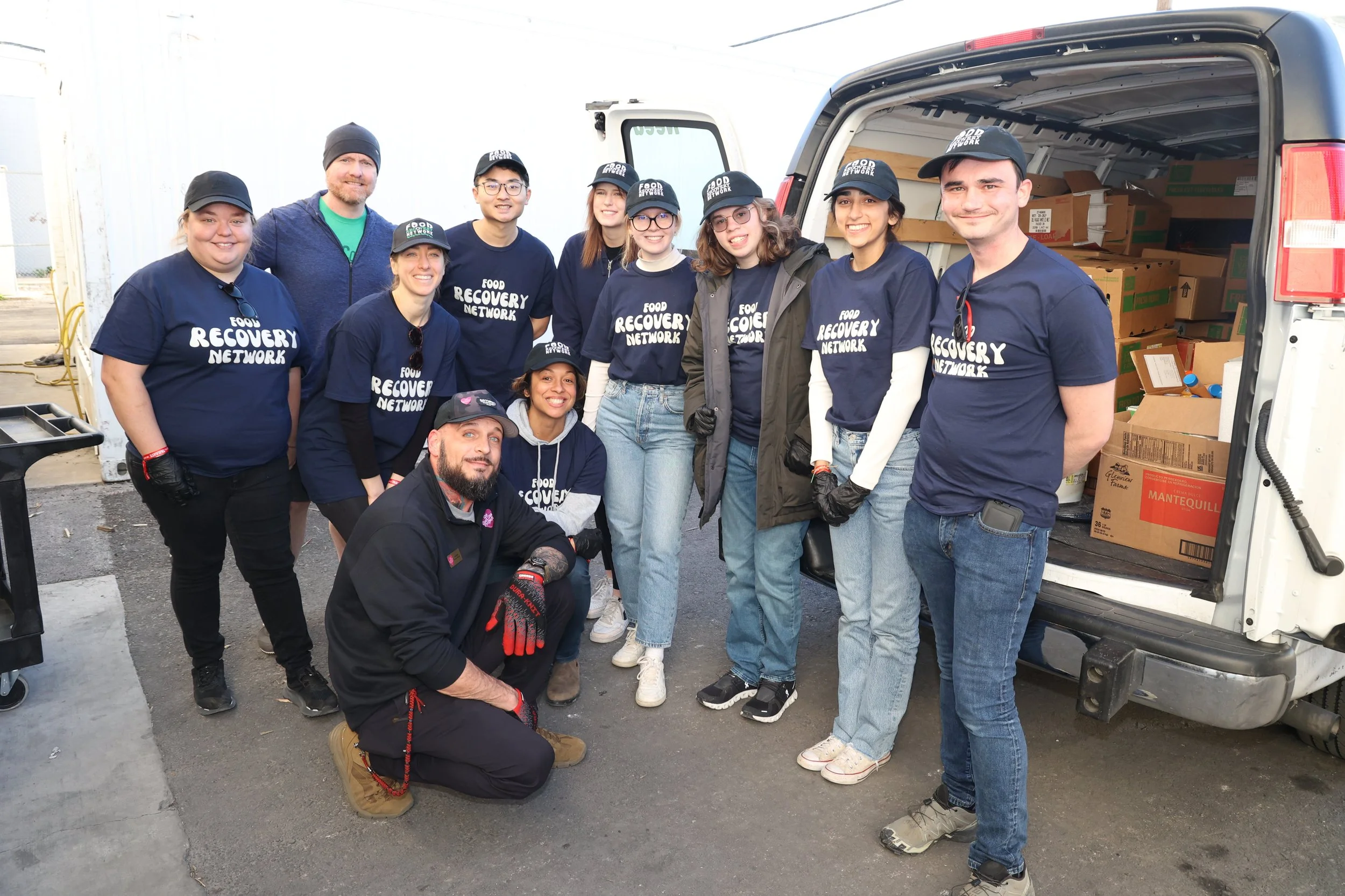Our December Alumni Spotlight is Rebecca Leighton, a 2017 graduate of the University of Minnesota at Twin Cities. In her third year as an undergraduate, where she studied Dietetics and Nutrition, Rebecca founded her school’s Food Recovery Network chapter. Though she was “met with a lot of resistance initially” her “experience leading this initiative taught [her] to persevere in order to do something [she] believed in.” We’re thrilled to feature Rebecca in the Alumni Spotlight because the passion she fostered during her time with FRN has led her to amazing places where she continues that original mission - to fight waste and feed people.
Rebecca’s favorite FRN memory is of her very first recovery, where she and her team of about fifteen students recovered 32 pounds of food. Her FRN team has come a long way since then - they now recover at least one hundred pounds at each recovery. She says, “It was amazing to see such quick growth in something that I had worked so hard at starting.” The ability to persevere, learn from her mistakes, and keep going despite obstacles after founding and leading a successful FRN chapter, she says, is what gave her the confidence to follow her dreams of creating a food pantry, called Nutritious U, on campus after graduation. Today, she runs that program while also working toward her master’s degree in public health and nutrition.
As tuition rates climb and students find themselves choosing between textbooks and food, more food pantries are being established on college and university campuses across the country. As the director of Nutritious U, Rebecca has a number of responsibilities. She orders thousands of pounds of food each month, organizes the shelves, staffs the pantry, reaches out to food insecure students, and coordinates a leadership team of 10 students and additional volunteers. In the near future, Rebecca is hoping to set up a streamlined process with University of Minnesota Twin Cities FRN Chapter, so recovered food from the dining hall can be delivered to Nutritious U. Rebecca also coordinates the meal donation program Swipe Out Hunger on her campus and teaches students about health and well-being, such as cooking classes.
To current FRN students, Rebecca says, “Stay strong, keep persisting, and keep growing. Never let anyone tell you that you can't do what you are passionate about.” You never know where the hard work of establishing a chapter could lead you; as in Rebecca’s case, it could be in a master’s program, directing a food pantry, and transforming hundreds if not thousands of lives with healthy, warm meals.
Thanks for everything you do, Rebecca!
Are you an FRN alumnus? If so, we want to stay in touch! Fill out the Alumni Survey on our website here. You just might be featured in our upcoming spotlight series!
Have questions/comments about our growing alumni network? Contact Sarah Diamond, Alumni Programs VISTA, at alumni@foodrecoverynetwork.org












